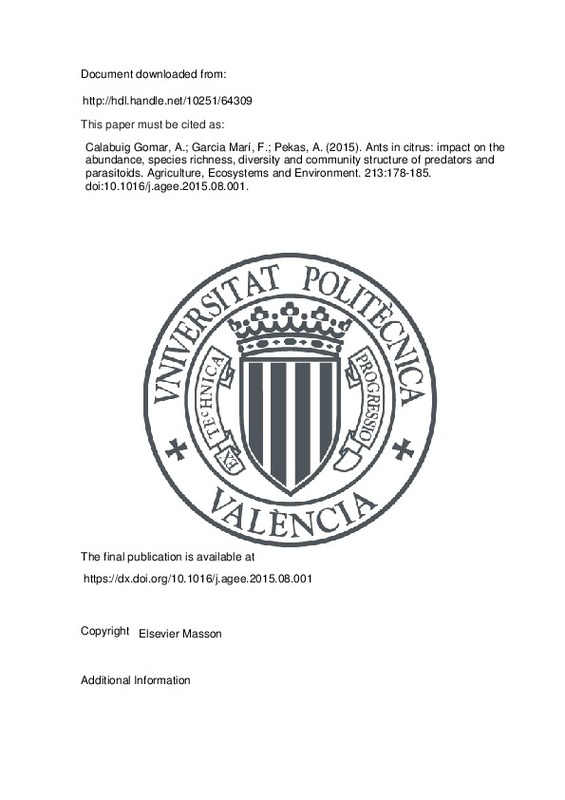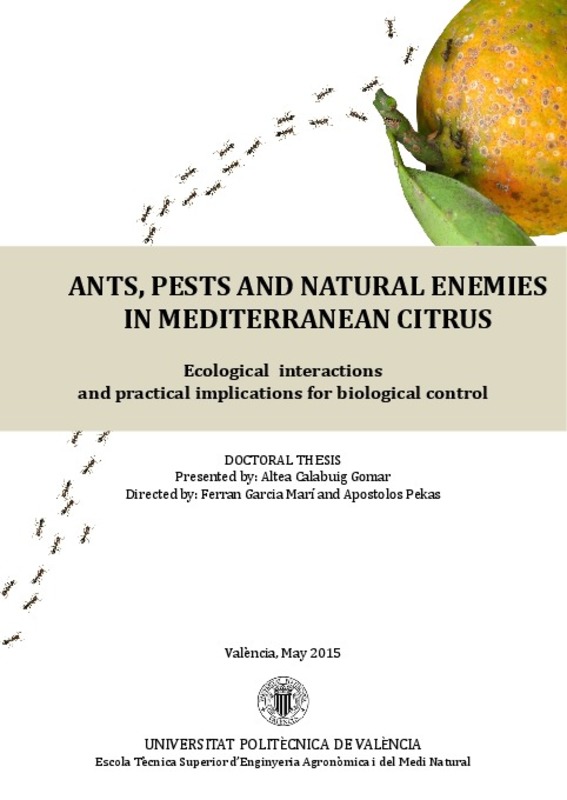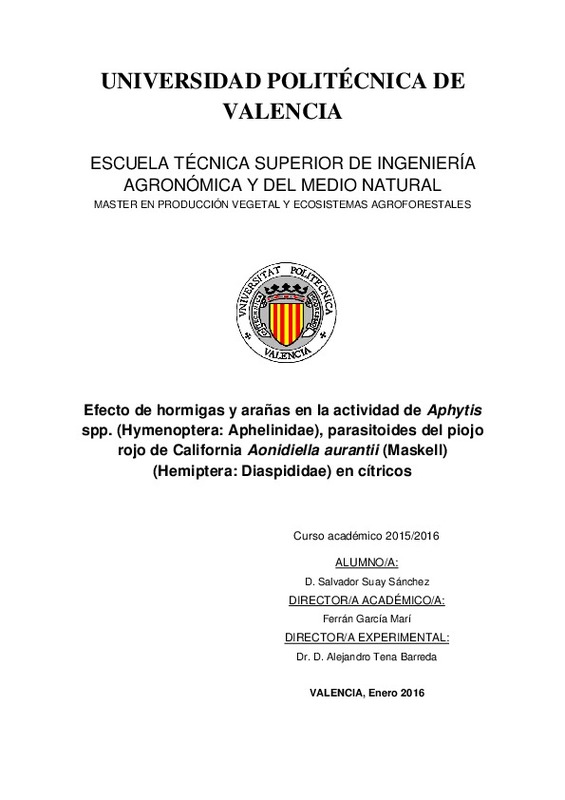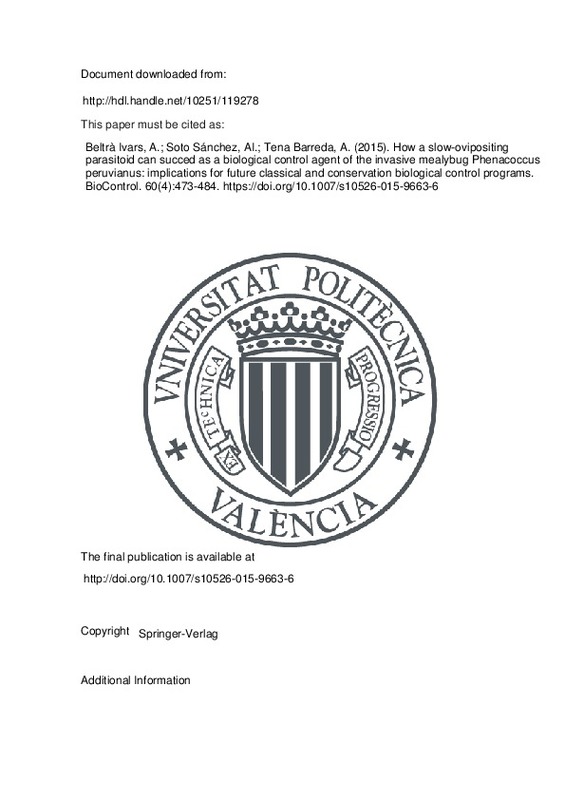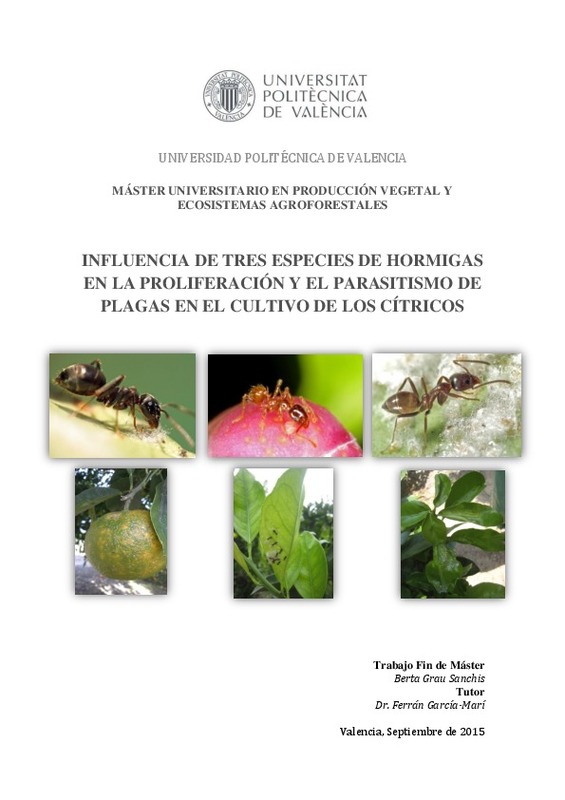

Listar por palabra clave "Ants"
RiuNet: Repositorio Institucional de la Universidad Politécnica de Valencia
- RiuNet repositorio UPV
- :
- Listar por palabra clave
JavaScript is disabled for your browser. Some features of this site may not work without it.
Buscar en RiuNet
Listar
Mi cuenta
Ayuda RiuNet
Admin. UPV
Listar por palabra clave "Ants"
Mostrando ítems 1-6 de 6
-
Calabuig Gomar, Altea; García Mari, Ferran; Pekas, Apostolos (Elsevier Masson, 2015-12-25)[EN] Although ants act as plant biotic defences, in agricultural ecosystems they are often associated with outbreaks of honeydew-producing pests mainly due to the protection they offer to the plant feeders in exchange for ...
-
Calabuig Gomar, Altea (Universitat Politècnica de València, 2016-07-24)[EN] Ants constitute an important component of the citrus agroecosystem fauna acting simultaneously as predators and as hemipteran mutualists. Thus, ants in citrus are in the center of a complex food web affecting the ...
-
Suay Sanchez, Salvador (Universitat Politècnica de València, 2017-01-09)[EN] Aonidiella aurantii (Maskell) (Hemiptera: Diaspididae) is one of the most important citrus pest in the Mediterranean area. Parasitoids of genus Aphytis (Hymenoptera: Aphelinidae) are its main natural enemies and ...
-
Plata Sánchez, Ángel (Universitat Politècnica de València, 2024-10-10)[ES] Los pseudocóccidos (Hemiptera: Pseudococcidae), comúnmente conocidos como cochinillas harinosas, son insectos hemípteros chupadores de savia que se alimentan del floema de las plantas. Estos insectos están entre las ...
-
Beltrà Ivars, Aleixandre; Soto Sánchez, Antonia Isabel; Tena Barreda, Alejandro (Springer-Verlag, 2015)[EN] Phenaccocus peruvianus Granara de Willink (Hemiptera: pseudococcidae) is an invasive mealybug that has become a pest of ornamental plants in Europe and has recently been detected in California, USA. In this work, we ...
-
Grau Sanchis, Berta (Universitat Politècnica de València, 2016-05-25)[EN] Ants are an important element of citrus agroecosystem, which act simultaneously as predators of insects and as mutual Hemiptera. As a result, the ants are at the center of a complex food web where they can affect the ...
Mostrando ítems 1-6 de 6

Universitat Politècnica de València. Unidad de Documentación Científica de la Biblioteca (+34) 96 387 70 85 · RiuNet@bib.upv.es


